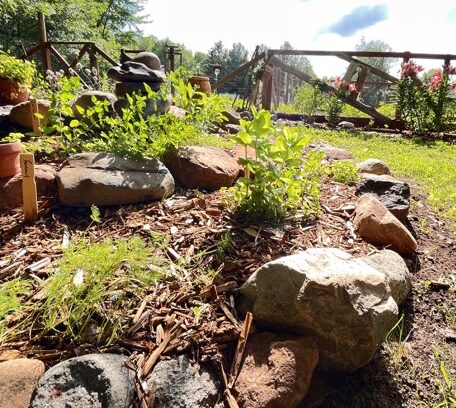Trauma comes in many forms & nearly everyone experiences some degree of trauma in their life. Early, profound, or repeated trauma is stored in the body & we learn to manage to cope with traumatic experiences via natural, adaptive survival mechanisms. These subconscious, survival mechanisms shield us from re-experiencing traumatic experiences, but keep us stuck in survival mode. Post-traumatic growth, and trauma recovery, is possible, but takes practice, understanding & self-compassion.
If profound trauma invades our world; the traumatic experience re-programs how we perceive our environment & alters our perception of safety in an already chaotic world. This constant, heightened state of fight or flight creates a ripple effect within our psyche, and ultimately, on our body via our vagus nerve and nervous system.
The body remembers trauma. It stores it in our physical body even if our psyche has naturally repressed horrific experiences to protect us.
“Overwhelm is the all too common feeling that our lives are somehow unfolding faster than the human nervous system and psyche are able to manage.
– Jon Kabat-Zinn
I started rebalancing, slowly, with many steps backwards, at the start of June. I spent May recovering from what I consider my 2nd very intense nervous system breakdown. This breakdown crippled me & ultimately brought me to the emergency room in early May. I arrived to an emergency room in the state over, totally lost & disheveled in a hypertensive state. Despite receiving good care & the best possible diagnosis; my 4 hour stay in a nearly empty emergency room triggered me.

An infant crying in the only other occupied room with a mom cooing a soothing lullaby, the day after Mother’s Day, on the first Mother’s Day I had no communication with my own mom because I finally held the necessary and firmest boundary which has been years in the making while personally mourning my own lost opportunity at motherhood in a traumatic way. This is one simple way triggers work if you have trauma surrounding an issue. Anything, including an infants cry at a certain time, can send you down a rabbit hole.
Being aware of what your triggers are and how they manifest in your body is an integral component of self-growth and a higher understanding of your authentic self. Triggers are also great communicators that something is not right in our surroundings, and therefore, ourselves.
A conventionally trained clinically licensed psychologist, Dr. Nicole LePera, who thoughtfully interweaves holistic healing practices with traditional theories of psychology says that a trigger is “an unhealed emotional wound. The level of emotions you experience gives you insight in to how long the trigger has gone suppressed.”
In Let Your Triggers Be Your Teacher – The Holistic Psychologist states in detail the ways to identify our triggers & how to use them for personal growth.
I was diagnosed with Post-Traumatic Stress Disorder (PTSD) as a result of the agony I endured re-living, in the most minute detail, over the course of 7 drafts, 9 pages & 62 line-items as my Statement of Facts as the Plaintiff in my IVF litigation. I wish reliving each tiny detail was the worst part, but I continue daily to learn, that the hardest part of trauma is having to sit, absorb & make sense of the hard truths and hardest struggles we all have to endure at some point(s) in our lives.
You have to make sense of the pain in some way to be able to heal. As Prince Harry notoriously says in the show, The Me You Can’t See, “Pain that is not transformed, is transferred.”

The more I learn, the clearer it becomes that the ego, or the voice of our subconscious, naturally has adaptive coping mechanisms that are triggered/activated to protect us from harm & keep us safe. This is adaptive. Natural. Intuitive. Survival instinct. These adaptive tools stay reinforced until we are able to name our own trauma(s).
Ignoring trauma, and trauma does not have to be one specific horrendous event to manifest in your world, does not allow you to ever heal and move forward from the wounds that we pretend are not below the surface.
The process of trauma recovery and ideally, ultimately, post-traumatic growth, is a process. A journey. A quest inwards to further understand how so much of our learned behavior is a result of either repeated actions and responses by caregivers or by previous, pivotal life moments. Like any process, for each step forward & each small victory, there are hurdles and steps back.
Emotional healing “is the process of acknowledging, allowing, accepting, integrating, and processing painful life experiences and strong emotions. It may involve empathy, self-regulation, self-compassion, self-acceptance, mindfulness, and integration. Many people have a tendency to want to control the process of emotional healing by minimizing the pain and controlling their emotions, but this can actually inhibit the process of emotional healing.”
My healing this time involved a lot of time alone, spent in solace and in nature. I allowed myself space to slow down & reflect on my emotions + physical bodily sensations. I also employed my newest tool to process grief & trauma | creative exploration. I finally pulled out my power tools, paint brush, bought a vintage ’67 Airstream with Illinois plates.







